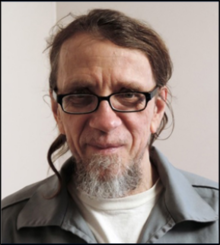Gratitude
Understanding Pragmatic Mission Killers
Murderers with a diabolical purpose.
Posted September 17, 2018 Reviewed by Ekua Hagan

All serial killers have a need to commit murder but their individual motivations vary. Some serial killers are driven by hedonistic, lustful desires. Some have visions in which God or Satan tells them to kill. Others have thrill-seeking needs. Still others seek power and the domination or control of others.
Serial killers are focused on either the process of killing or the act of killing. Committing murder is an end in itself for those focused on the act of killing. Committing murder is a means to an end for those focused on the process of killing — that is, killing serves a fantasy need such as lust.
A type of serial killer that is pragmatic in orientation and focused on the act of killing is the “mission-oriented” serial killer. This type of killer seeks to improve the world according to his own biased and self-serving standards. They target specific groups of individuals.
Mission-oriented killers justify their murders as being necessary to rid the world of a group of people that they perceive to be undesirable. Such groups may include prostitutes, the homeless, or those who are different from the killer in terms of race, ethnicity, religion, or sexual orientation.
Unlike “visionary killers,” who hear voices and are often mentally ill, mission-oriented serial killers are rarely clinically insane. They are likely to be perfectionists and highly compulsive. They are often stable, gainfully employed, and long-term residents of the geographical territory in which they kill.
Mission-oriented killers are highly meticulous in their crimes. They plan their murders with great precision and they kill their victims quickly and efficiently. Thus, mission-oriented killers generally fall into the FBI’s “organized” category of serial killers that plan their murders in detail prior to committing them.
Some mission-oriented killers believe that by terminating the life of a victim, which is usually done in a ritualistic manner, the deceased is thereby absolved of all wrongdoing. In such instances, a killer may see himself as an avenging angel and believe that his victims are being divinely chosen for him.
Some mission-oriented killers actually believe that their victims should be grateful to them for having been selected for termination. When a victim does not express proper gratitude for having been chosen, a mission-oriented killer can become resentful and even infuriated.
A classic mission-oriented killer is Joseph P. Franklin, a former member of the Ku Klux Klan, who was convicted in 1980 of four homicides, including a sniper shooting of two black men who were jogging with a white woman in Salt Lake City, Utah, and the shooting of an interracial couple in Madison, Wisconsin. Franklin justified and rationalized his compulsive and ritualistic killings by saying, “Race mixing is a sin against God and nature… I feel it is my duty as a servant of God to protect white womanhood from injury or degradation.”
Mission-oriented killers will not stop until they are either apprehended or killed.
If you are interested in serial killers, you are not alone. I explore our curious fascination with serial killers in both fact and fiction in my bestselling book, Why We Love Serial Killers: The Curious Appeal of the World’s Most Savage Murders.


